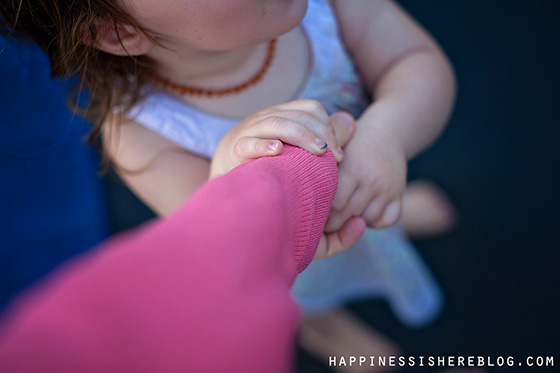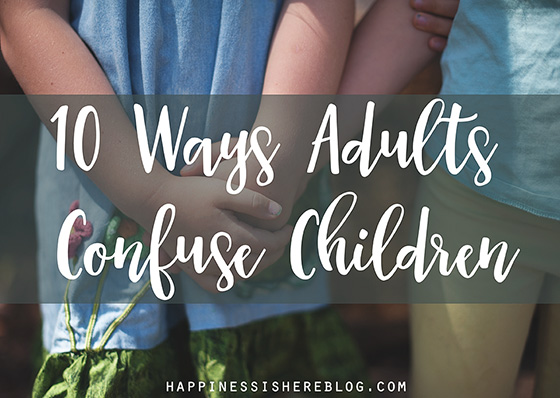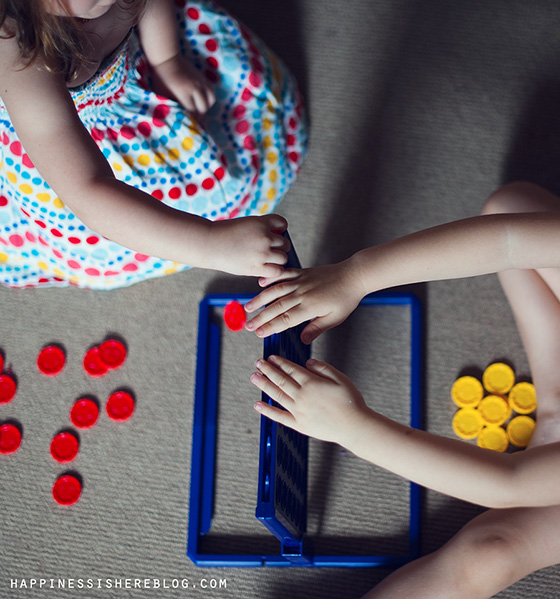
10 Hypocritical Parenting Trends
![]()

It’s a confusing world to try and make sense of for children.
Our job as parents is to support and guide them through it, and yet I can’t help but notice how often common parenting practices make things a whole lot more confusing.
Children are people, just like adults, but we don’t treat them that way. We assume that they cannot be treated with the same respect and rights as adults.
“We constantly ask ourselves, in anxiety and pain, “What is best for the children, what is right for the children, what should we do for the children?” The question is an effect as well as a cause of modern childhood. Until the institution was invented, it would hardly have occurred to anyone to ask the question or, if they had, to suppose that what was good for children was any different from what was good for everyone else.” -John Holt, Escape from Childhood
While we may be aiming for them to grow up to be capable, self-motivated, confident, healthy people, our actions say otherwise. Instead of treating children how they should be treated (and how we would like them to treat others), we constantly contradict ourselves, instead showing them they are incapable and untrustworthy, as well as damaging their self-confidence and intrinsic motivation.
And what’s more? Some of the ‘rules’ we have for children are just downright unfair and hypocritical.
We really need to rethink a lot of the messages we send to children through our words and behaviour.
10 Confusing Messages We Send Children
1. I don’t have to sleep alone, but you do

So many adults dislike sleeping alone. I cannot sleep when my husband is away! It’s just not the same being all alone in bed. Usually, I do have some little people snuggled up to me, but even then it’s ‘different’ without my usual person beside me. Expecting children to sleep alone before they’re ready then seems a bit hypocritical.
Children are also expected to go to bed on schedules set by someone else, instead of listening to their own tired signs. This would be absurd for an adult. Children feel tiredness, they want to be healthy and feel good. When they are free from control, they are able to listen to their bodies and make appropriate choices.
Want to learn more about cosleeping? Read these…
Shared or Solitary Sleep: Which is Safest for Babies?
2. I know when I’m hungry, but you don’t
Although we wouldn’t dream of asking an adult to “have one more bite for me”, children are often not afforded the same rights to listen to their bodies. They are commonly expected to eat to please adults rather than to satisfy their own hunger.
Not only is it more respectful to allow children to be in control of their basic bodily functions and needs, it’s also better for their long-term health.
“Parents create environments for children that may foster the development of healthy eating behaviours and weight, or that may promote overweight and aspects of disordered eating. Positive parental role model may be a better method for improving a child’s diet than attempts at dietary control.” –Influence of parental attitudes in the development of children eating behaviour
More information on autonomy with food…
Honouring Autonomy: Our Food Philosophy
Solving my picky eater’s infuriating fussiness led us both to food sanity
3. I can tell if I’m cold, but you can’t
“Put your coat on, it’s cold”
“I’m not cold”
“You must be. Put it on now.”
Sound familiar? No one would do that to an adult. We know that humans can feel if they are hot or cold, they don’t need to be forced into clothing dependent on someone else’s evaluation of how their body feels. Recommend, sure. Bring a coat for them if you think they’ll change their mind, sure. But no need to undermine their trust in their own body.
4. I can decide to have a day off, but you cannot

Adults are allowed to have ‘lazy’ days, ‘sick’ days, ‘relaxing’ days, but children are often not allowed the same. Binge watch Netflix as an adult, fine. Chill in front of the TV for more than your allotted ‘screen time‘ if you’re a child, not fine. Even wanting a day off school is seen as some type of manipulation.
Maybe we can instead see it as children listening to their needs. Knowing when to slow down and take time out is a good thing.
5. I can cut my hair, but you need permission
Take your child to the hairdresser and the chances are they will not consult your child on how they want their own hair, they will ask you, the parent. Why? Because that’s what they are used to. Parents dictating to a child how they should look is a common occurrence. From haircuts, to clothing choices, to ear piercing. None of these decisions should belong to anyone else other than the person who owns the body. The rules don’t change dependent on age.

Read more about the importance of bodily autonomy here…
Five Ways to Honour Your Child’s Body Autonomy
Their Body, Their Choice
6. My feelings are important, but yours are trivial
Most decent people would never ignore, downplay, or mock another adult’s emotions, and yet it is not seen as disrespectful to do the same to a child.
“When we, as parents, try to control a child’s emotions, we strip her of who she is in that moment and require that she push her emotions down rather than allowing the feelings to flow.” -Teresa Graham Brett, Parenting for Social Change

Children learn to deal with their feelings in healthy ways not by adults shutting them down. Emotional regulation skills are developed through being free to express your feelings and receiving support and empathy.
Read more…
10 Things to Say Instead of ‘Stop Crying’
7. Too much screen time is bad for you, but not for me

At the same time as screen time limits are strictly imposed on children, adults are modelling their own dependence on screens. We can’t expect children to have more self-control than us, and we can’t expect them to really believe that screens are terrible when we clearly don’t think so ourselves.
Screens are not the enemy. Disconnected relationships based on control and power are. Any problem can be solved in the context of an authentic, connected, respectful relationship. We can talk with our children about what healthy bodies and minds need, and any negatives of screens, while problem solving together when needed. No arbitrary rules necessary.
More on screens…
8. You have to share your things, but I don’t
“You’ve had that toy long enough, it’s your sister’s turn now. We have to share our things.”
“No, you can’t play with my phone, it’s mine.”
Double standards much? The truth is we don’t HAVE to share our personal belongings if we don’t want to, and children shouldn’t have to either. Forcing sharing just builds resentment and makes children less likely to be empathetic and want to share in the future.

9. You must stop what you’re doing immediately when I ask, but I won’t
Although it’s perfectly reasonable to ask a child to wait before you do something for them if you’re in the middle of something important, why does this not apply to children as well? They are often not allowed to tell us to wait. Adults deem what they are doing unimportant and expect them to stop immediately when asked to do something else.
If you want someone to do something for you it’s common courtesy to ask, not demand, allow them the choice to decline, and wait for them to finish what they are doing first (unless it’s an emergency). If we want children to respect our time, we must show them how to do that by respecting theirs too.
10. I can be trusted to learn, but you can’t

No adult is told what they must learn and when, without their consent. We trust that if they need to learn something, they will seek to learn it. We accept that they get to choose their own interests and topics they want to explore further. Children, on the other hand, are not seen as capable of following their own interests. In fact, their individual interests are given the least importance. They are expected to prioritise learning a set curriculum, at the same pace as everyone else their age. But, children are born ready and willing to direct their own learning, if given the chance.
“How did we go from conditions in which learning was self-directed and joyful to conditions in which learning is forced on children in ways that make so many of them feel helpless, anxious, and depressed? Children’s instincts for self-directed learning can work today as well as they ever did. When provided with freedom and opportunity, children can and do educate themselves marvelously for our modern world. The schools that we see around us are not products of science and logic; they are products of history. History is not logical; it is not directed toward any planned ends; and it does not necessarily produce progress in the sense of improved human conditions.” -Peter Gray, Free to Learn

As adults, we have a strong sense of how we should be treated. We know when someone is disrespecting us. We know when our rights are being trampled on.
Children deserve the same as we hope to receive for ourselves. Their age does not make them less worthy. If we want them to believe they are capable, trustworthy, in charge of their lives, and free to express themselves, then we must act that way.
Let’s treat children with respect and fairness, and stop contradicting ourselves!







Comments
Great list of how to respect children like adults. I love it. 🙂
This entire list is based on a flawed premise: that children have the capacity to decide what is in their best interests. They have plenty of desires at this stage, but little to no developmental ability to analyze, evaluate, consider the consequences, and decide on a suitable course of action – all of which adults possess.
Consider how virtually nonexistent their frontal lobe activity is at their youngest stages of development (which is the age at which most of these are directed). I may be able to decide when I want to go to sleep, but that is because I can consider the consequences of staying up past midnight, given what I have to do tomorrow. I also have spent 35 years with my body signals (for hunger, sleep, etc) and know how to recognize what they are, when they can be safely superseded, and when they are lying to me. A child has neither the awareness, experience, nor the language (internal or expressive) to understand this and make a decision that is reasonable. This article also ignores the value of delaying gratification and persevering in spite of obstacles to achieve a goal. The vast majority of young children are unable to self-regulate in this way – they naturally lack the developmental skills to do so.
From the arguments here presented, there is no line which ought not be crossed. “I know where to have fun and with what but children don’t (eg, not in the street, with matches, etc)“ is equally valid. There is a kernel of truth in this article: kids are capable of far more than we give them credit for. And we should always check our presuppositions to ask “What is MY child capable of?” But the idea that we should let them run free and unfettered with their desires is absurd, unscientific, and potentially unsafe.
Most people having never allowed children to have any freedom or autonomy are of the same belief that they are incapable and untrustworthy.
Neither is true.
Nothing in my response or my practice was/is about beliefs or convictions – it is about the factual evidence of science, which clearly shows that executive functioning and other higher-order thinking skills are severely lacking in children vs adults. Again, not to say that they can do none of it, but that there is a point at which it is improper and unwise to expect adult behavior from children. It is this which the adult analogies ignore, and which constitute the fallacy in thinking.
That’s why they need support and guidance. That doesn’t have to mean arbitrary rules and control.
Now I get it. You’re reacting against a straw man version of traditional parenting – the “because I told you so” or “because I’m the adult, that’s why” type of authoritarian. By using arbitrary and control-based rules as your paradigm (and implicitly conflating all rules and guidance with those), this conclusion seems fairly inescapable.
In trying not to do the same to your argument, I read several other of your articles and linked posts, and think that in the end we mostly agree in principle. The authoritarian style of parenting is unwise and potentially harmful, and it is always far better to model desired behavior and have open discussion on rules/guidelines rather than deliver them unequivocally and hypocritically from on high, as it were. But at the end of the day, we are still the adults and they are still children and there is both a qualitative and a quantitative difference between the two that is scientifically valid and must be recognized and incorporated into parenting strategy. The entire structure of the article disallows this distinction.
Here’s the bottom line: is there any developmental difference between children and adults beyond physical characteristics? I can’t fathom a reasonable “No” answer. If “Yes”, then the best that can be said about this article is that it hyperbolically overstates the case to make a point about respecting children as valid and legitimate people too. Not a bad outcome, and truly a valuable one. But using the logic presented, there is no guidance given to the readers on where/when to draw the line and be the adult in the room. It’s good rhetoric, but bad advice.
You’re half right. This article is very good, it reminds us that we should treat children with more respect, that we should be models for them. We can not expect our children to wach less TV if we are a contradiction. Expect them to do exactly what we are not doing. This article is not telling us to let our children do all they want with no supervision or no guidance, or to let them play in the middle of the street if they want that. Just let them have some choices, and freedom.
You’re right that “is no line which ought not be crossed” mentioned in the article. But we should know how to include the general advise presented in the article in our lives.
Are you a neurologist?
I think what the author of this article is saying is that parents/guardians should practice what they preach. Also, maybe some children will be more likely to cooperate if given choices, rather than just being told what they are going to do.
Another extremely important contradiction we teach children is that they don’t actually have bodily autonomy. We tell them how important it is that no one touches them in a way that makes them uncomfortable, how we’ll always heed then when they say it’s happened but then we force them to give affection. “Stop being mean and hug your uncle/grandma/cousin.” As adults we are far less likely to be forced to hug, kiss, or sir on the lap of another person we don’t want to be physical with.
I wish this would of been out 27 years ago I would still be connected with my children.
I agree with all of these goals for how to treat children, and it’s a good reminder for many. Builds autonomy and belonging. The first point, about sleeping alone, works for me mostly, and that’s what I did with my son. But I also wonder about when they get older, in college or middle aged, and don’t have the experience of sleeping alone and feeling safe. For many children, it’s impractical to sleep with family members and they probably develop great skills of self-reliance. Very interesting!
We assume whatever this article’s author means is that parents should follow what they are teaching. Often, if given options, some kids will be more likely to comply, rather than only becoming told what they are allowed to do.
Yep, great stuff. Some quite challenging and challengeable. And great comments. A comment of mine then on the huge ice cream picture one. One of the single biggest challenges for any parent. And one of the easiest to fix. Some day, parents will realise that one thing kids can’t possibly know, immature pre frontal cortex or not, is that conventional ice cream is not food, not something for kids. Rather it is, normally, a means of conveying a large shot of processed fructose into the user. It’s a baby drug, like grown ups alcohol. Does exactly the same thing to the user. You don’t know it is, but I do? Too soon? Too boring? Too radical for 2021? Anyway, life we find, is so much easier without that one around for our young one. And so much better for brain and body development in young people.